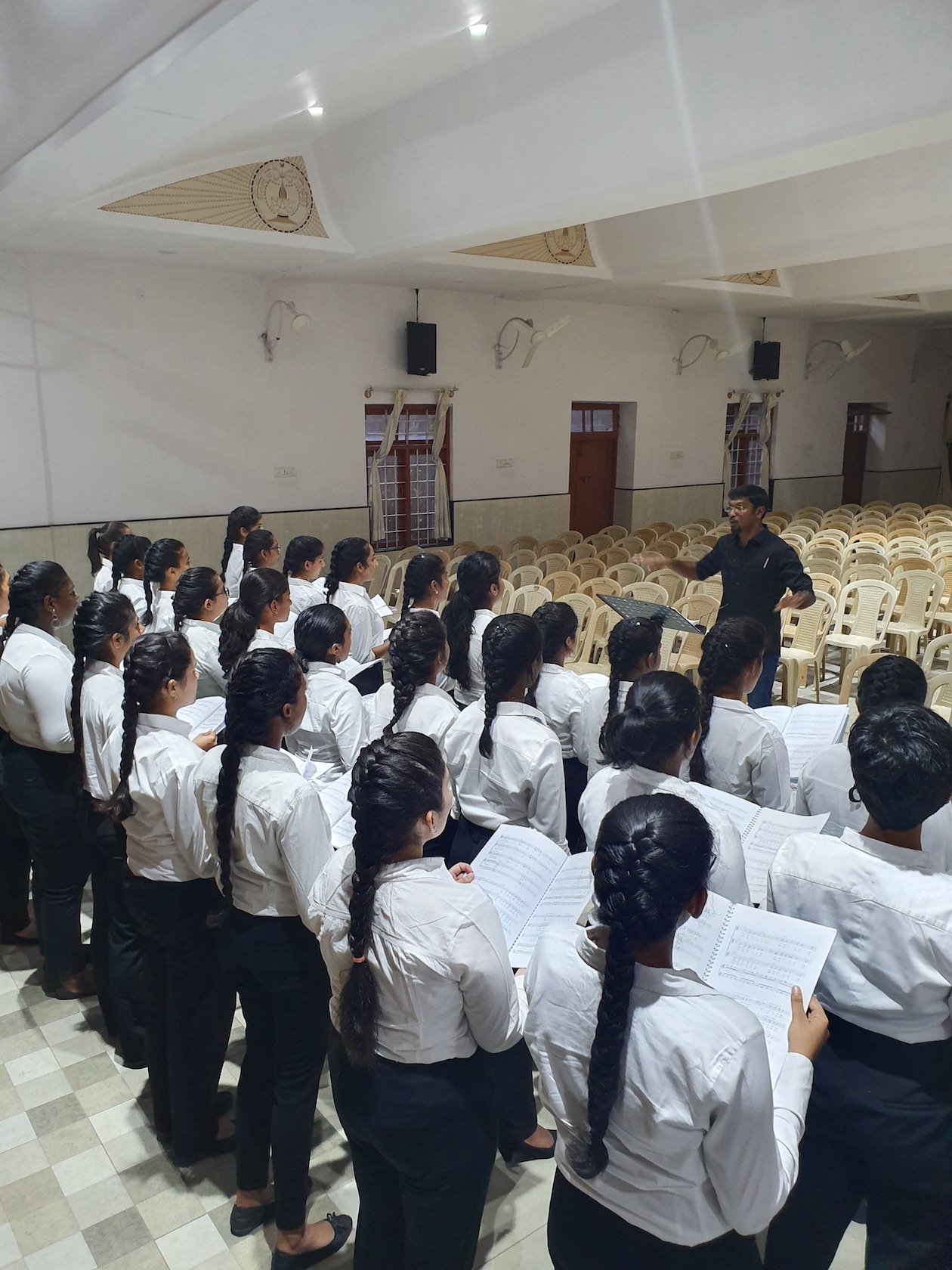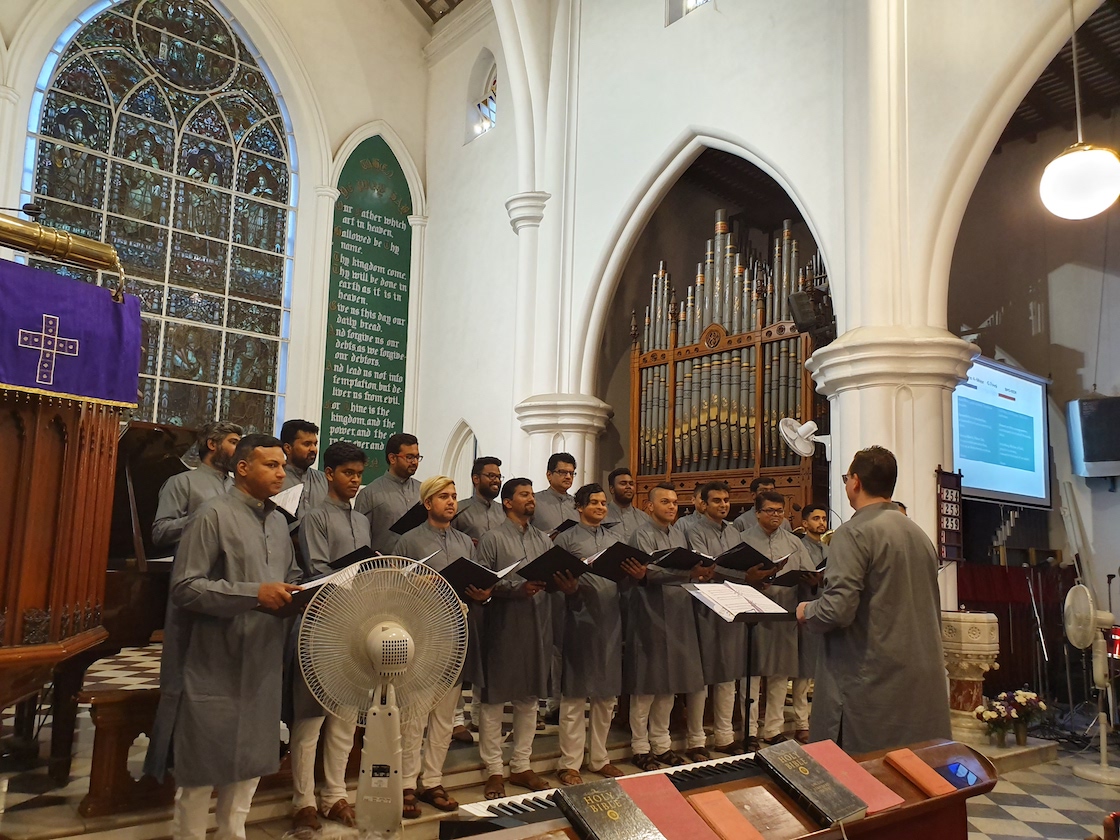Thoughts on selecting repertoire for choirs
Leading a choir means you have many different tasks – often ranging from the actual musical side of it, to concert planning, admin tasks, building a social context and – of course – repertoire selection for your choir. This is a task that is often taken a bit too lightly and not given the importance it should have. Carefully selecting repertoire for your choir – whether you lead a church choir, a children’s choir or a male voices choir – can prove both exciting and inspiring, and is a crucial part of the learning process for your singers. Here are some of my tips and reflections!
What are your – and your singers’ – ambitions?
Some singers primarily join a choir for the breaks meaning the social context that a choir is. If you run a college choir, community choir or church choir open to all abilities, then choosing a technically complicated piece could soon have people finding it too difficult and hence leaving the choir. Similarly, some singers want a musical challenging environment and if you run an auditioned choir where all singers have a similar level of musical experience, then choosing something too easy may bore them and have them feel their learning is stalled. Keeping in mind that simple music isn’t always the same as easy music.

Getting to know your choir and understanding what works for them is crucial when selecting repertoire. What are your ambitions with the choir as a leader and does these match with the ambitions of the singers? Many choirs have a gap between the conductor’s vision and the choir members’ commitment level. Try to bridge this by dialogue – invite some of the choir members in repertoire discussions and decisions. Not only does it support the anchoring process in the choir – you might also get new ideas and impulses from a diverse group of people.
How much time do you have?
Consider the amount of rehearsal and preparation that music will take. Look at your schedule and probable performance dates. Do you have enough time to get your choir ready to perform so that they and you feel confident that you will be able to deliver to your quality standards? Careful rehearsal planning is the best way forward. If time before the next performance is limited perhaps just select one or two new pieces and review some existing repertoire.
That way, the choir gets a new challenge but doesn’t feel swamped. Many choirs struggle with rehearsal attendance, especially in the beginning of a new season. Help you choir members with recordings of the pieces you intend to sing – suggest suitable versions on Spotify etc – not for copying but for inspiration and listening in the car, in the bus etc. This aids learning as well. You might also want to consider recording pronunciation of text if you do music in for the choir unknown languages or even record some of the trickiest passages for the parts on a piano and send to the choir members. Utilize technology to the fullest to enhance the learning process!
Is the piece suitable?
Always look at the lyrics and consider the meaning of a piece before selecting it for your choir. Is it suitable for your choir’s demographic? Will the audience enjoy it? What kind of programme are you building?
Too many concerts try to cram in too much music. Find your red thread – whether it is a geography, an era or a composer – and weave your musical web around that – rather than trying to have a little bit of everything. A concert should be a cohesive journey for the listener and not a smorgasbord trying to please everyone.

Pleasing everyone is an impossible task, but as you get to know your choir you will start to get a feel for what works and what doesn’t. The start is often tough – especially if you have chosen complicated pieces of music. Parts sound strange together, rhythms are off and the choir might feel it is too a difficult task. Don’t despair! Think of dividing the choir – maybe an experienced singer could take one half of the choir and you as conductor the other? By doing this you maximize the rehearsal time and also speed up the process. I use this frequently in my work with The Bangalore Men – using the first half of a rehearsal as a part rehearsal and the second as a tutti rehearsal. Very effective!
Is your choir capable of singing it?
Another important aspect to consider is the vocal ranges in your choir. Does the piece provide a good challenge without being unrealistic?
For example, a lot of early music (which was never intended to be sung by SATB choirs) is very high for the tenors, which might be a struggle for some choirs. In the same way, some music written for adult voices are not suitable for children’s’ choirs. The selection of repertoire is an important aspect of ensuring a healthy vocal progression in the choir. Compare it with an instrument – a cellist wouldn’t try to play the part written for the trumpet and so on. And even if they theoretically would be able to play it – the outcome is seldom good!
Rather choose fewer and easier pieces than complex and difficult which might not sound good in the end. I call this using “effective” music – music that is enjoyable to sing, liked by the audience but doesn’t take an eternity to rehearse and perfect but at the same time poses an adequate challenge for the choir. When planning a concert, try to have a majority of this kind of “effective” music, interspersed with a few more challenging pieces, both for the choir and for the audience. As you go along and mature, your bar for what is “effective” music will gradually rise and ensure continuous learning.
How does the piece fit in your concert programme?
Sometimes, you might be performing a single choral work, like a mass, passion or oratorio, but you’ll probably just as often have several stand-alone items in a performance programme.
Try to make sure that there is variety and interest for each vocal part across a selection of music. Similarly, check that a single part isn’t going to be carrying the melody all the time, or singing at the extremes of their range for a whole concert. By this you will both make sure that all singers feel they are challenged and that you promote a healthy vocal progression of your singers.

Also keep the audience in mind, as mentioned in the above section. Who are you performing for? If your audience is a well-seasoned crowd, you can afford to present more complex and intricate music that perhaps require more of the listener. If your performance is for a bunch of newbies to classical music – why not make an easier programme, which can be a motivator for them to explore and learn more. Promote Googling! Such an excellent source of knowledge for the curious listener!
Another aspect to take into consideration is the venue of the performance. Are you singing in a church, in a concert hall or in a shopping mall? Depending on this – a number of repertoire constraints may arise. Singing a requiem for a bunch of Saturday shoppers is probably not a good idea, and in the same way trying avoiding music that requires amplification in the church setting. Select music that works well with the venue and acoustics you have to work with – and be prepared to be agile in your choices!
Spend time reflecting after a concert
A task often neglected is to, after you have got some perspective and the post-concert hype has died down, reflect upon the concert.
What went well? What can be tweaked or changed? Maybe some pieces worked better than others – or maybe the order of the programme should be changed for the next performance? Doing a reflection session with your singers is another simple way to ensure inclusion and a diverse perspective. Remember that the entire essence about is choir is doing something collectively, and it is not only the opinion of the conductor that matters – even if the conductor in the end always needs to be the one making the final musical decisions.

With a bit of planning, you as conductor can ensure that our singers get the right mix of challenge and enjoyment that will keep them inspired throughout the season. Keep in mind that most singers, if not part of a professional choir, sing for their own enjoyment and passion. This is not their job – but something they take out time and energy on during their spare time. Respect that – support your singers, understand their ambitions, set clear expectations and make sure singing in your choir offer constant learning – both for your singers AND for yourself!





